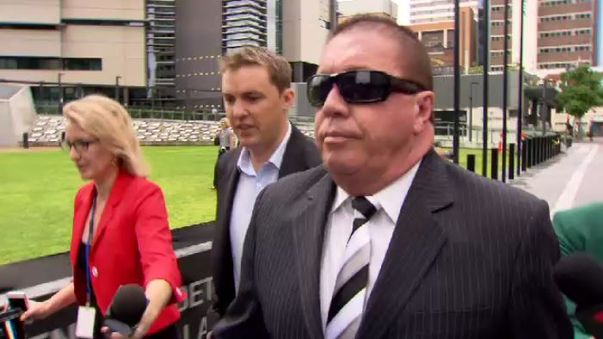February 2015: This Valentine's Day, SCAMwatch is warning the online dating community to beware of any love interest who asks for money.
Signing up to dating websites has proven successful for many singles seeking a match. Unfortunately it has also proven popular among scammers who prey on people's vulnerabilities to steal their money, particularly around sentimental times of the year.
Scammers are experts at preying on people's weaknesses, and will spend months and even years grooming victims to lower their defences. Inevitably, the fraudster will spin a tall tale about why they suddenly need your financial help, ranging from medical emergencies to failed business ventures to needing to rebook flights to visit you.
Once victims realise that their admirer is actually a criminal, the emotional consequences can be devastating.
These scams can also pose a risk to your personal safety as scammers are often part of international criminal networks. Scammers have lured unwitting Australian victims overseas, putting people in dangerous situations that can have tragic consequences.
If you are looking for love online, don't let a scammer leave you broke and with a broken heart. If your online admirer asks for money, ask yourself: 'Do I really know who I'm dealing with?'
How the scam works
- You meet someone online through a dating or social networking website whom you seem to just 'connect' with.
- The person may have an appealing profile, claim to have similar likes and dislikes or have gone through similar experiences.
- Your online admirer will soon ask you to communicate through a private channel such as via email or webcam.
- After trust and a relationship is established, they will ask you for money to help cover costs associated with illness, injury, a family crisis or travel to see them.
- Scammers will often disguise their request for money as a short term loan to help them out until they can get access to some other source of funds.
- Regardless of the approach, the scammer will typically ask you to send them the money via wire transfer.
- If you send them money, they will continue to ask for money to get out of other problems. Amounts requested may initially be small but tend to increase over time.
- If you send money to a scammer – especially via a wire transfer – it is almost certainly gone forever. Just as importantly, your heart may be broken and trust shattered.
Protect yourself
Think twice: Never provide your financial details or send funds to someone you've met online. Scammers particularly seek money orders, wire transfers or international funds transfer as it's rare to recover money sent this way.
Watch out: If an online admirer asks to communicate with you outside the dating website, such as through a private email address or over the phone, be very wary – scammers want you away from any safeguards that are in place on the site.
Search: Use the Google 'search by image' tool to check the authenticity of any photos provided by someone you met online as scammers often use fake photos they find online.
Avoid: Don't share photos or webcam of a private nature. The ACCC has received reports of scammers using this material to blackmail victims.
Report: If you think you have provided your financial details to a scammer, contact your bank or financial institution immediately. If you think you met a scammer through an online dating service, let the site operator know.
Report
You can report scams to the ACCC via the report a scam page on SCAMwatch or by calling 1300 795 995.
More information
In 2014 the ACCC conducted an internet sweep of the online dating industry to review:
- compliance with the ACCC's Dating Industry Best Practice Guidelines, which were published in 2012 following a collaborative effort with online dating service providers as part of an industry working group; and
- whether dating sites are being true and fair in their dealings with customers.
The sweep findings are available in the ACCC online dating industry report.
Stay one step ahead of scammers, follow @SCAMwatch_gov on Twitter or visit http://twitter.com/SCAMwatch_gov.
You have received this email because you have subscribed to receive SCAMwatch radar alerts on scams targeting Australians. These alerts are issued by the Australian Competition and Consumer Commission and can be viewed on its SCAMwatch website http://www.scamwatch.gov.au.
If you have any doubts about an email's source, verify the sender by independent means - use their official contact details to check the email is legitimate before clicking on links or opening attachments.
If you no longer want to receive SCAMwatch email alerts, please unsubscribe on the SCAMwatch website.





